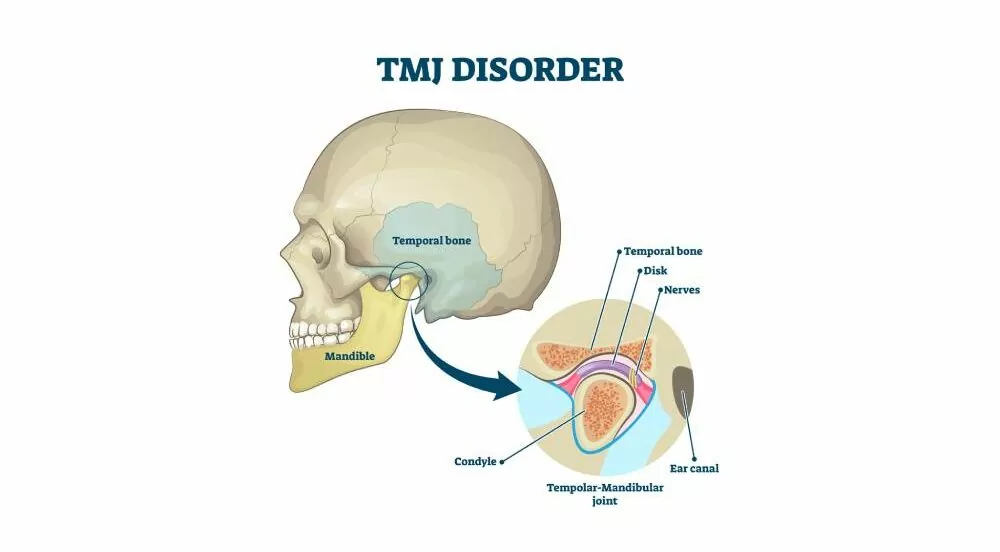TMJ Disorder
TMJ can be treated using various options. If you have jaw pain, there are ways to diagnose and treat it so you can live peacefully.
TMJ can be treated using various options. If you have jaw pain, there are ways to diagnose and treat it so you can live peacefully.

Experiencing an aching jaw, pain or tenderness in the jaw joints, or discomfort while chewing may indicate a Temporomandibular disorder (TMD), commonly known as TMJ. TMJ refers to issues with the temporomandibular joint, the hinge connecting the jaw to the skull, located below the ears on both sides of the face.
Determining the exact cause of TMJ can be challenging, but several factors must be considered. Possible causes include erosion or displacement of the disc between the jaw joint bones, arthritis in the jaw joint, trauma, teeth grinding, high-stress levels, and potentially a genetic predisposition.
At Porters Neck Dental Aesthetics, we will thoroughly discuss the various causes of TMJ and develop a personalized treatment plan to address your specific needs.
If you have TMJ, it’s important to note that self-diagnosis isn’t reliable. However, there are common symptoms to look out for. If you experience any of these symptoms and they persist, it’s essential to seek a dentist’s opinion for an official diagnosis and treatment plan.
In most cases, temporary jaw, ear, or facial pain will resolve independently. But if the pain becomes persistent and over-the-counter medications or home remedies don’t provide relief, it’s recommended to contact a professional.
Common signs and symptoms of TMJ include:
– Jaw pain
– Tenderness in the jaw
– Ear pain
– Pain while chewing
– Achy facial pain
– Jaw joint locking
– Headaches
To diagnose TMJ Disorder, we will start by exploring any risk factors that could be causing your pain. After that, we will conduct an examination that involves listening to your jaw, feeling its movement, and applying pressure to identify the source of the pain. Additionally, we may take x-rays or 3D images. In some cases, an MRI may be needed to assess potential damage to the disk or soft tissues.
We typically recommend starting with over-the-counter pain relievers like Tylenol or Ibuprofen for minor pain and inflammation. In some cases, doctors may prescribe a type of antidepressant to help control bruxism and improve sleep. Muscle relaxants can also provide relief for certain patients.
Oral appliances can be effective in treating TMJ. At Porters Neck Dental Aesthetics, we offer hard and soft appliances that can be worn at night to alleviate bruxism. These appliances help with TMJ symptoms, protect the teeth from deterioration, and prevent excessive pressure that can lead to cracking and breaking of dental work. Our custom-fit night guards are comfortable to wear during sleep. If oral appliances do not provide relief, surgical intervention may be necessary, and we can discuss the available options with you during your appointment.
In addition to medication and oral appliances, other alternative treatments can help relieve pain and stress. These include:
– Avoiding foods that strain the jaw muscles
– Applying heat and cold to the affected area
– Acupuncture
– Meditation or other relaxation techniques
– Massage
– Physical therapy
While we favor a conservative approach to treatment, surgical options are available if you do not find relief. We can help connect you with a specialist to evaluate your case and determine if surgical intervention is appropriate.
If you have more questions about tmj disorder or want to schedule an appointment, please give us a call and we will be happy to discuss further.